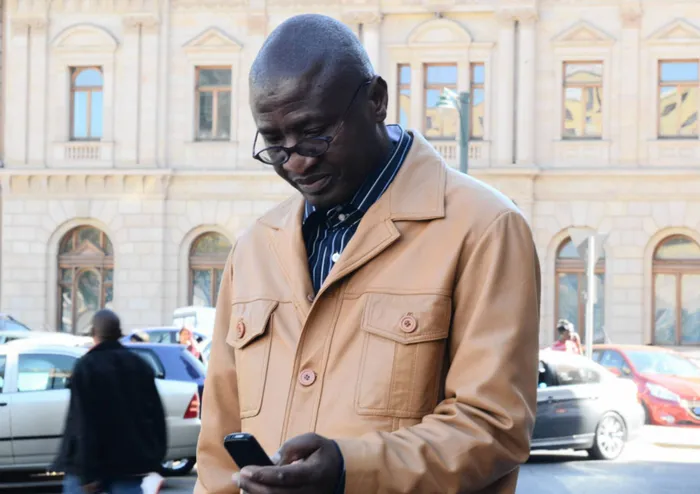Marikana cop wanted SAPS to pay his lawyer

16.8.2013 Lieutenant Shitumo Soloman Baloyi outside the Palace of Justice on Church Square. Picture: Etienne Creux 16.8.2013 Lieutenant Shitumo Soloman Baloyi outside the Palace of Justice on Church Square. Picture: Etienne Creux
Pretoria - A police lieutenant who was “brutally” stabbed by a group of protesters during last year’s Marikana Lonmin Mine uprisings, lost his urgent Pretoria High Court bid to force the police to foot the bill for a legal team of his choice to represent him at the Farlam Commission of Inquiry.
While the SAPS said its legal team would represent Lieutenant Shitumo Solomon Baloyi, he was insisting on having his own representation, due to a possible “conflict of interest”.
Judge Joseph Raulinga turned down Baloyi’s application.
Baloyi last week sought an urgent order to declare unethical and unconstitutional the decision by the national nolice commissioner, General Riah Phiyega not to fund separate legal representation for him.
He also asked the court to interdict Phiyega and Police Minister Nathi Mthethwa from appointing the SAPS legal team to represent him, and to afford him counsel of his own choice, paid for by the police.
On August 16 last year, police shot and killed 34 miners at the mine in North West Province. Prior to this, a number of people were killed and injured during prolonged strife at the mine.
Three days before, Baloyi and other police officers were deployed to Marikana in response to the volatile strike by miners.
While patrolling the area under the command of Major-General William Mpembe, the officers confronted a group of protesters who were marching, armed with weapons, along the railway line.
Baloyi said Mpembe asked the protesters to surrender their weapons to the police. The situation became violent and some of the protesters attacked and stabbed Baloyi.
Two other policemen - warrant officers Mosese and Lepaaku were shot and hacked to death.
After the Marikana tragedy, the SAPS appointed a team of three senior counsels and private attorneys to represent it at the Farlam Commission. Phiyega also appointed a team to represent Mosese’s family.
A third team was appointed on watching brief.
Baloyi said both the minister and Phiyega had told him he was a “risky and conflicted witness” to be called.
He says he was never consulted by the police’s legal representatives to hear his version of events.
Baloyi said in spite of him having a story to tell, he was never included in the initial witness list.
The Police and Prisons Civil Rights Union (Popcru) intervened and appointed counsel to represent Baloyi and the family of Lepaaku.
Baloyi, however, feels the SAPS has to foot the bill, as he is willing to testify before the commission.
Judge Raulinga said the matter has to be decided against the backdrop that the Farlam Commission is an investigative, fact-finding body with the mandate to only make recommendations. It also has its own rules and regulations.
These, the judge said, do not give Baloyi the right to appear as a witness. It is entirely up to the commission whether or not to call him.
He added that there is no dispute that Baloyi is entitled to legal representation at state expense, only whether he could chose who should represent him and having the SAPS fund that person.
The judge said the Farlam Commission is not involved in resolving disputes and if Baloyi is called to testify, he will appear as a witness.
There is no obligation on the police to consult with him.
Phiyega has denied Baloyi’s claim that joint representation by the police legal team would amount to a conflict of interest.
She said she had offered to Baloyi the services of the senior advocate leading the SAPS team, but he declined the offer.
The judge said the application had to fail, as the SAPS was not bound by Baloyi’s choice.
His lawyer, Mpho Mofomme, said they would definitely take the matter further, possibly to the Constitutional Court.
He is just waiting to see what happens today in the judgment by the Constitutional Court in the matter of lawyer Dali Mpofu, on whether the State should pay the legal costs of the injured and arrested miners before the commission.
Pretoria News